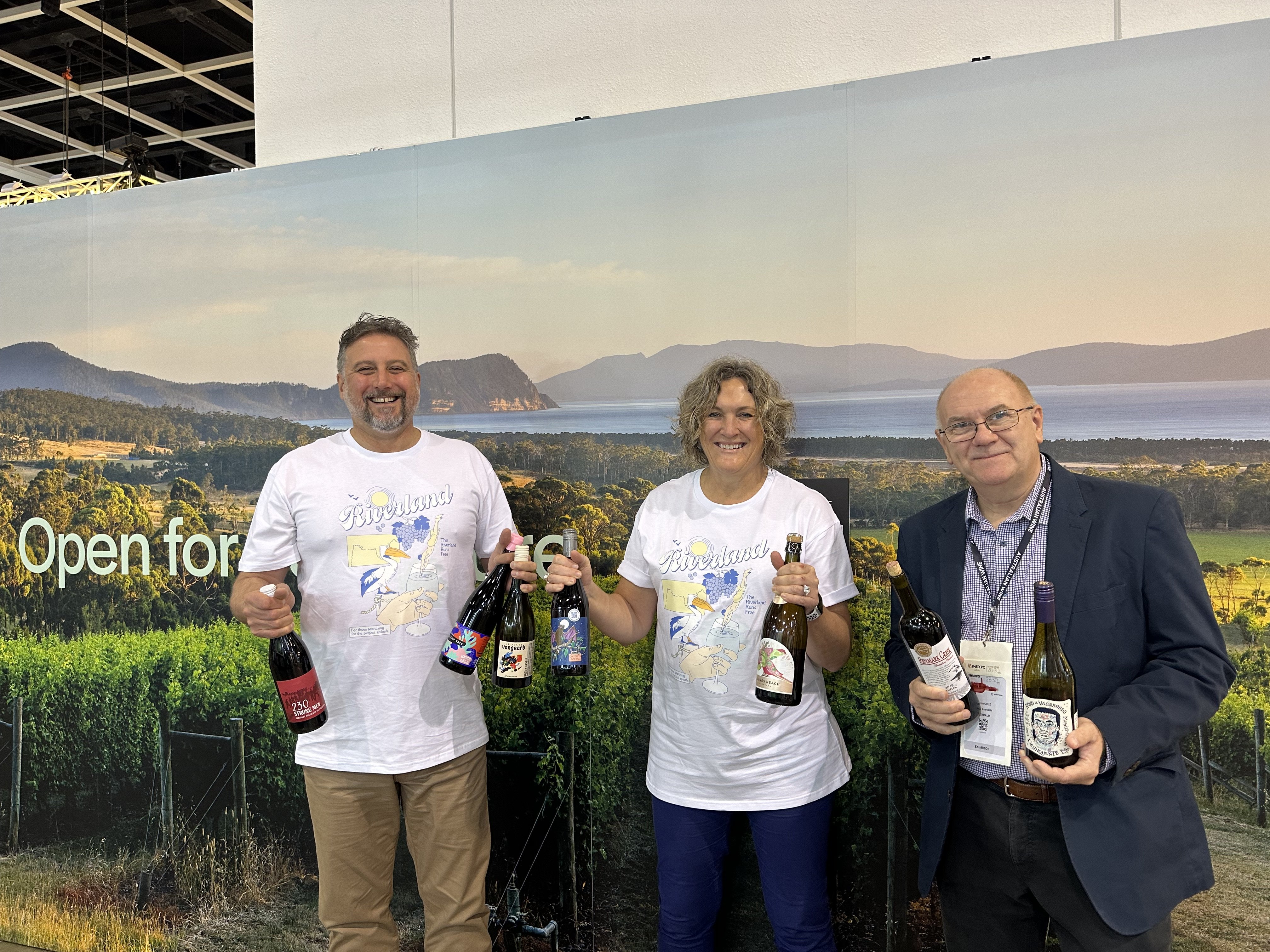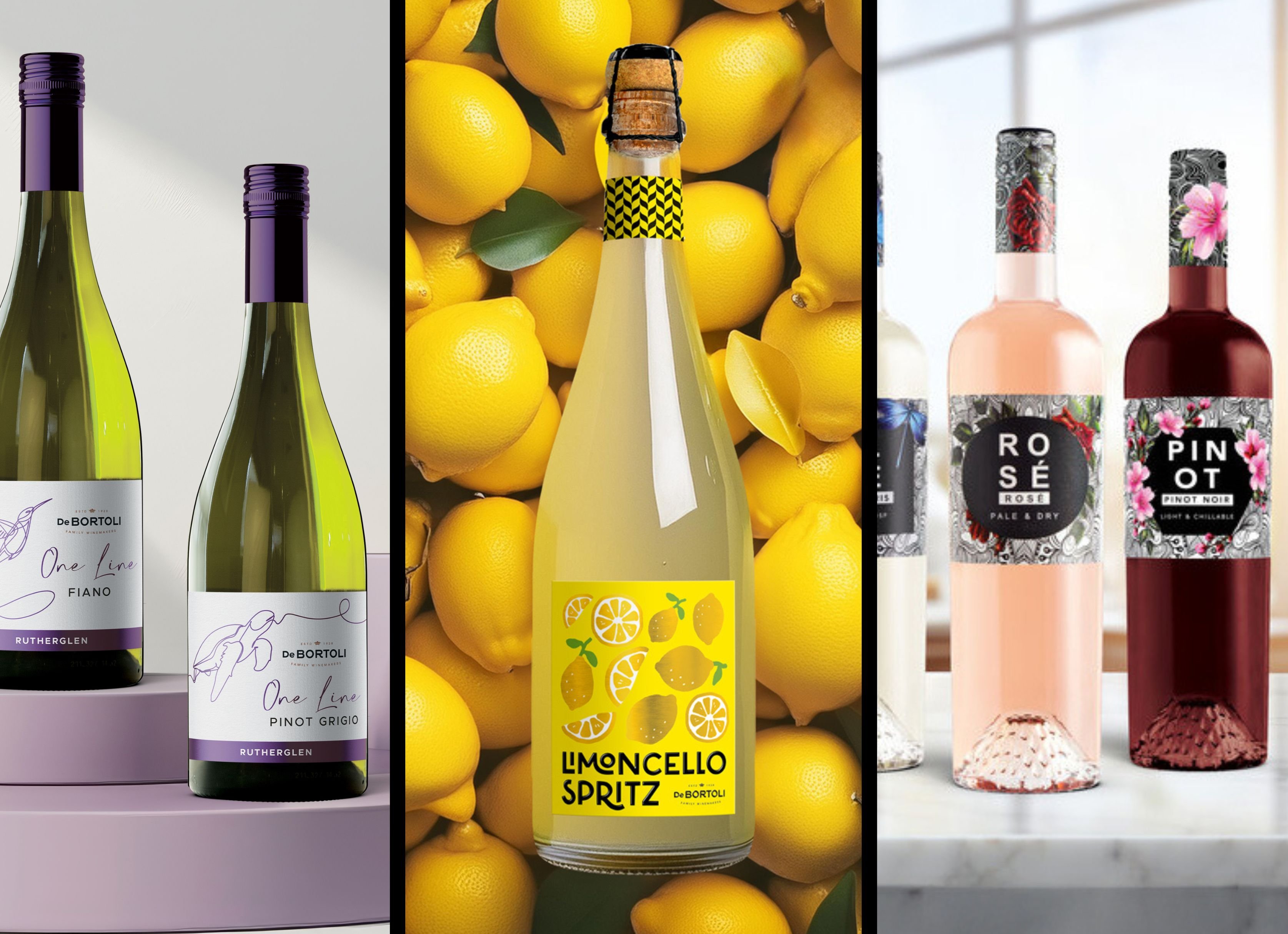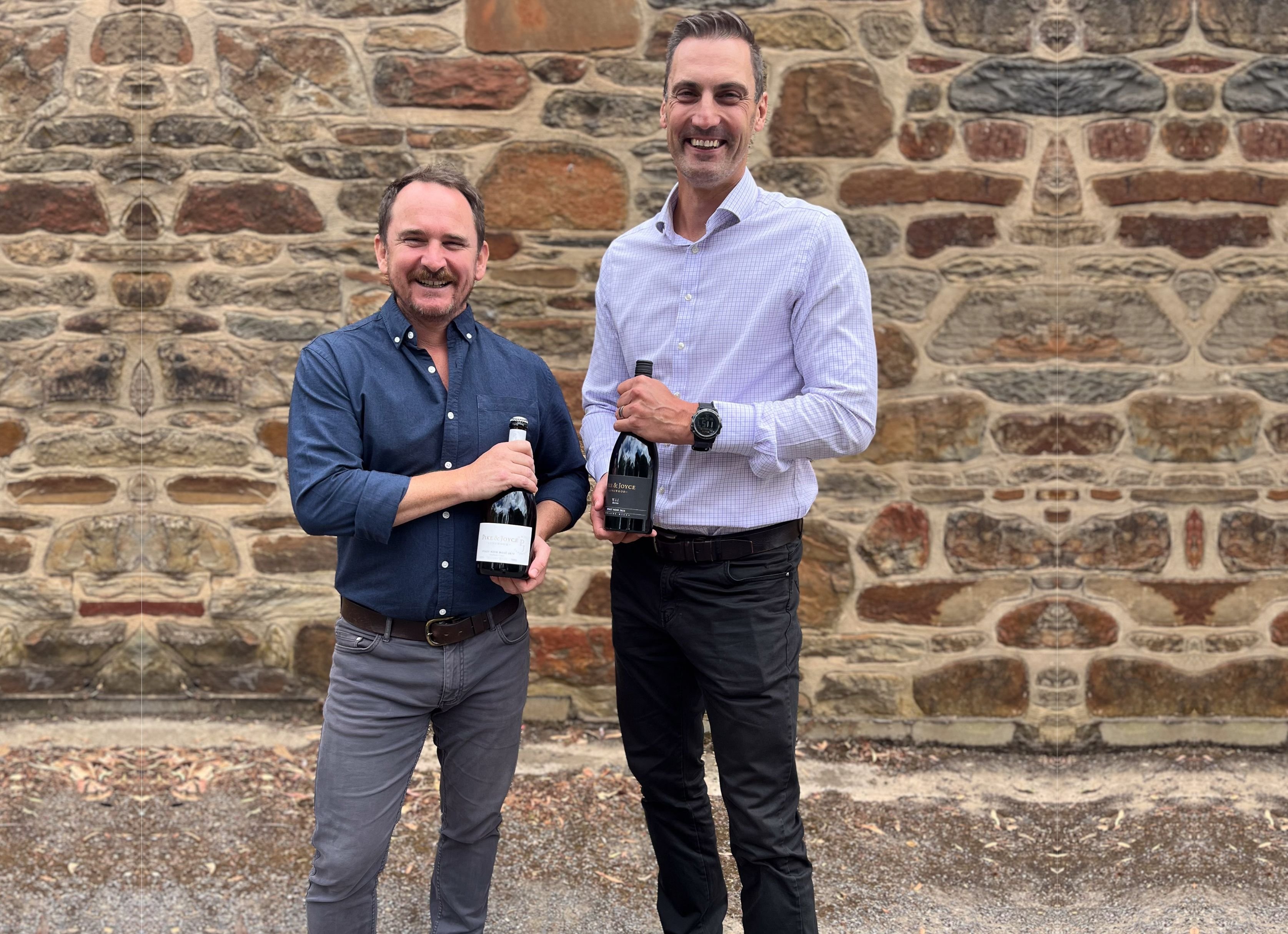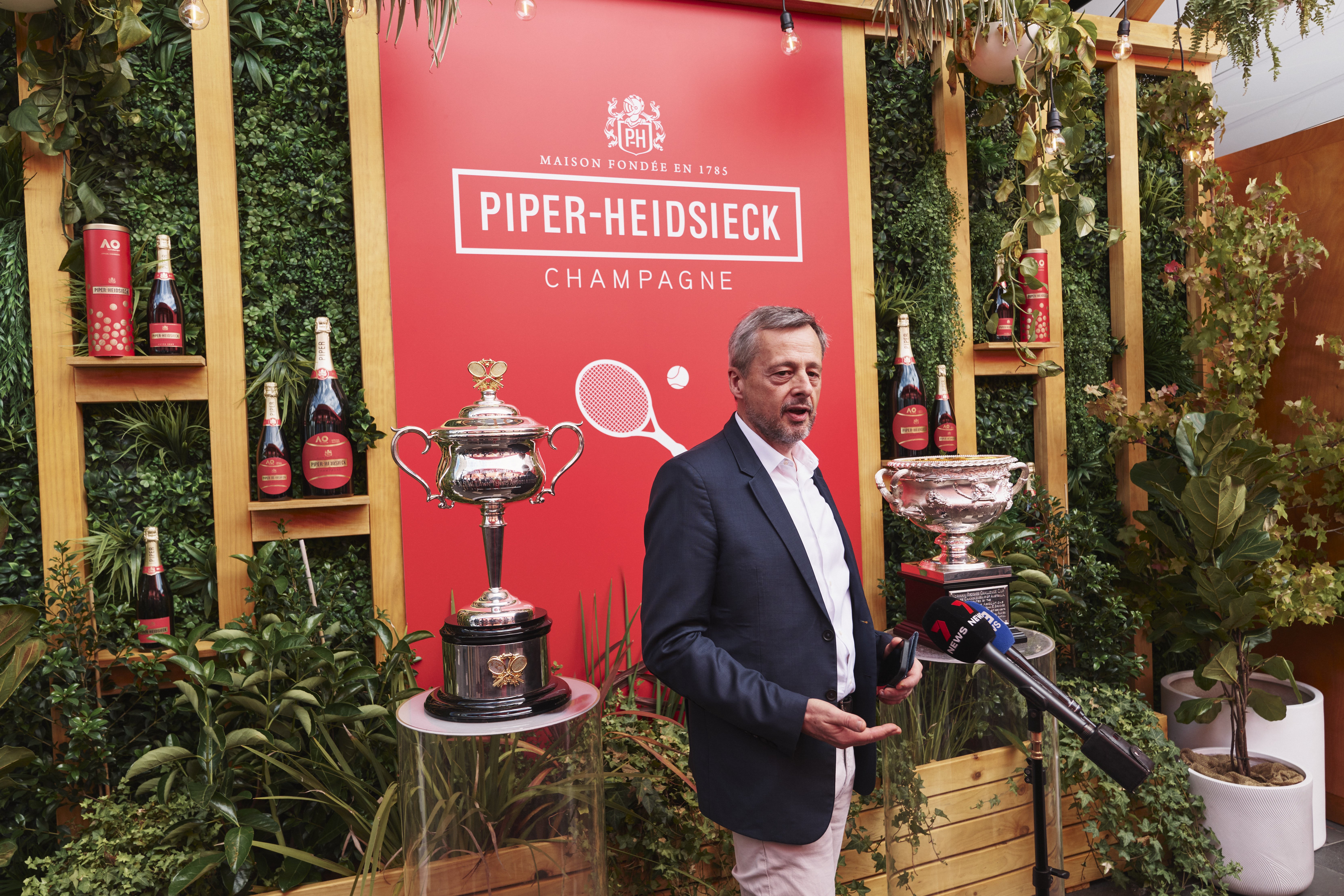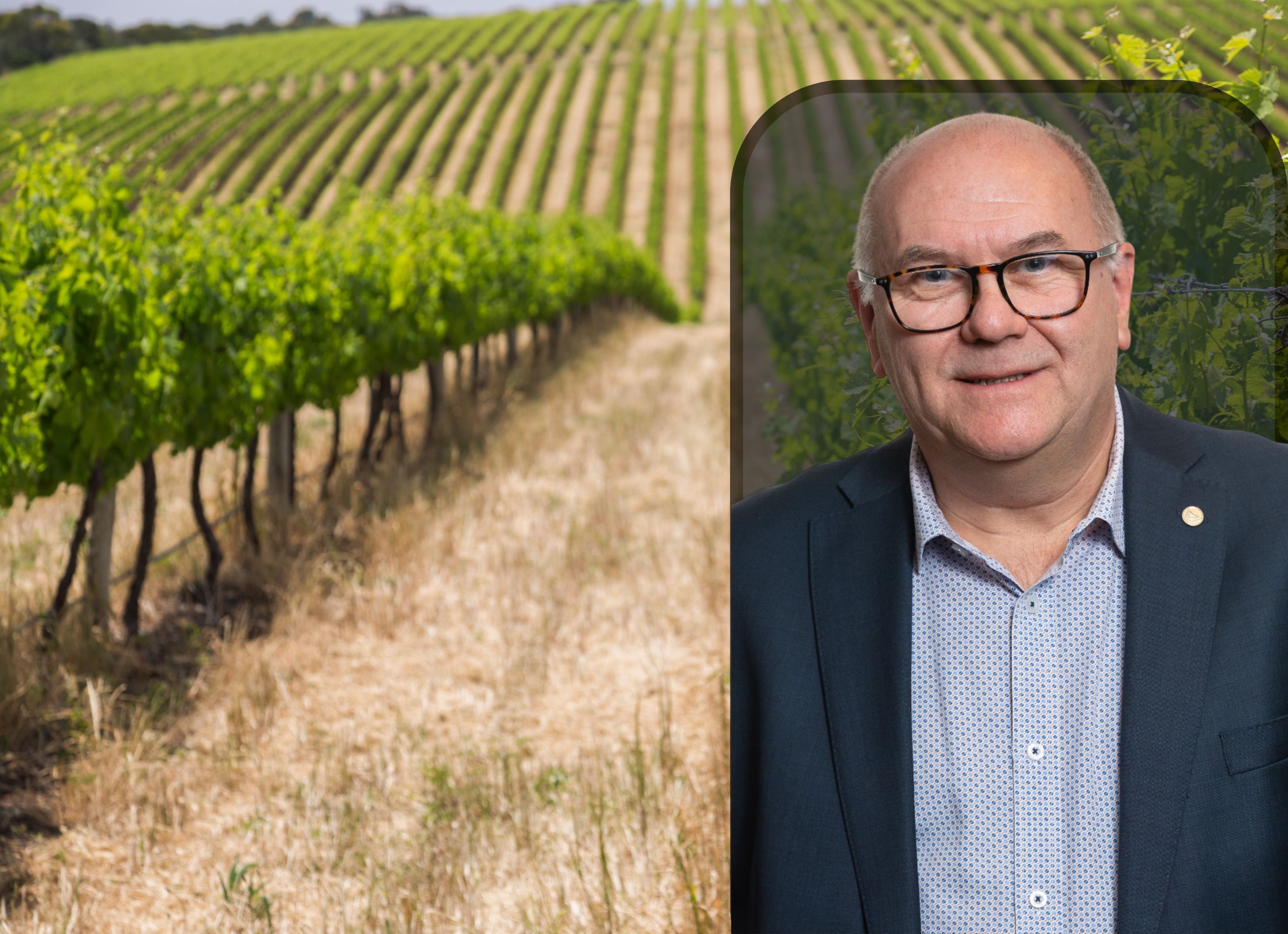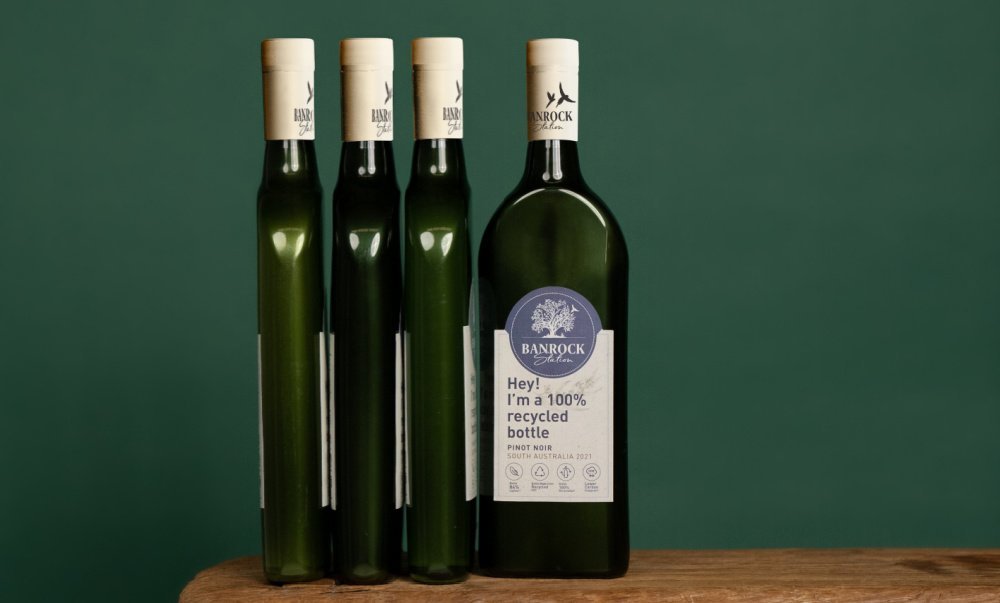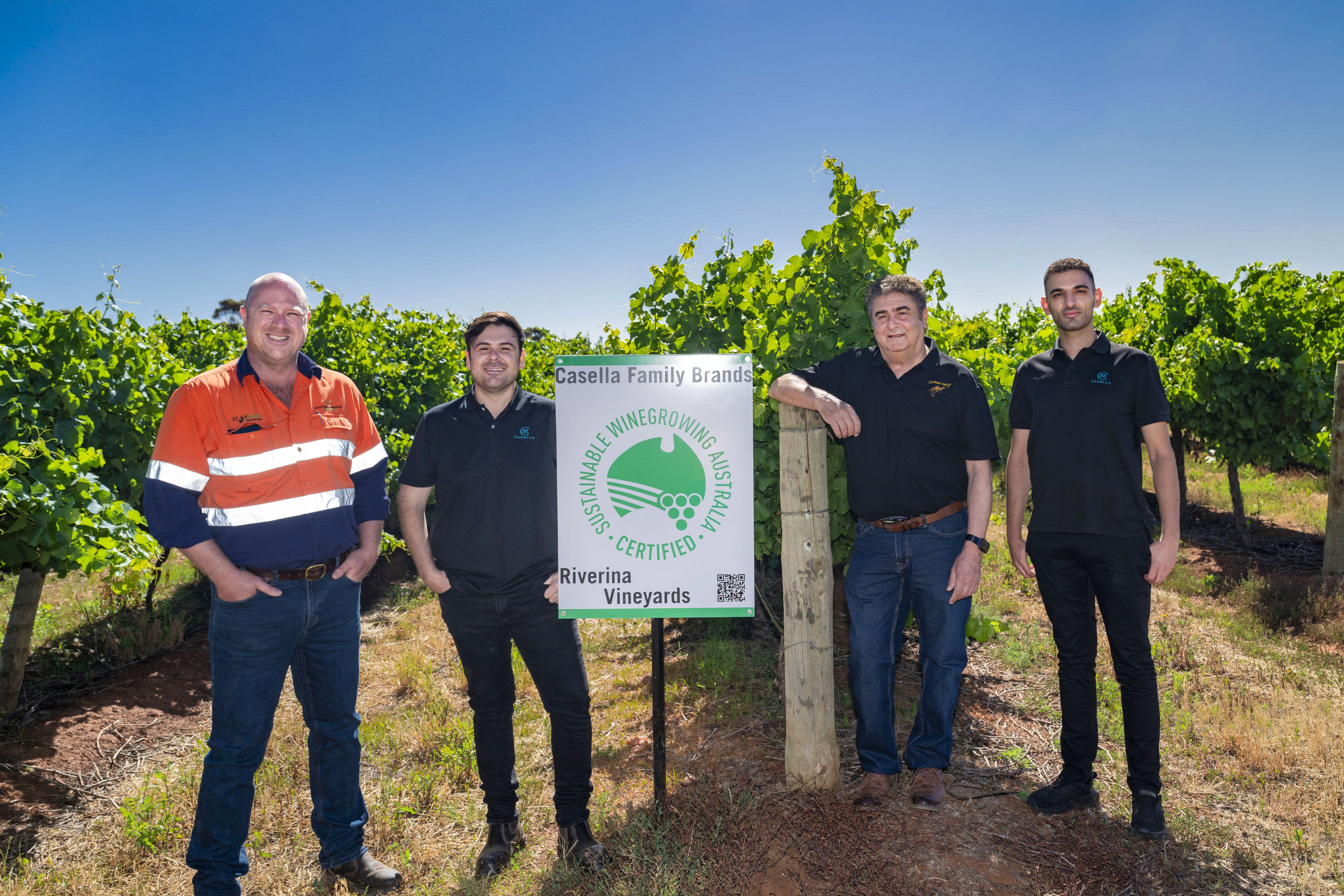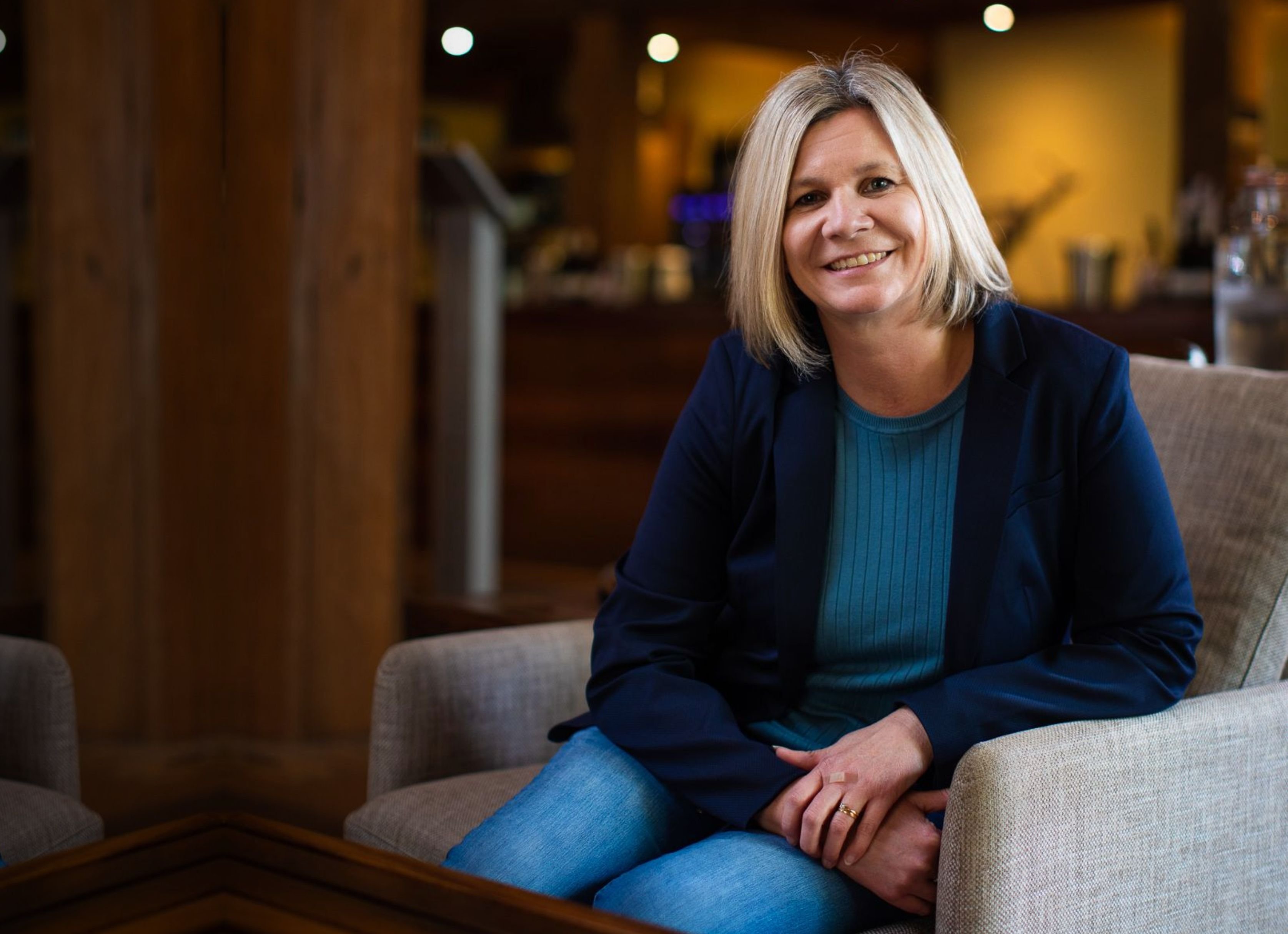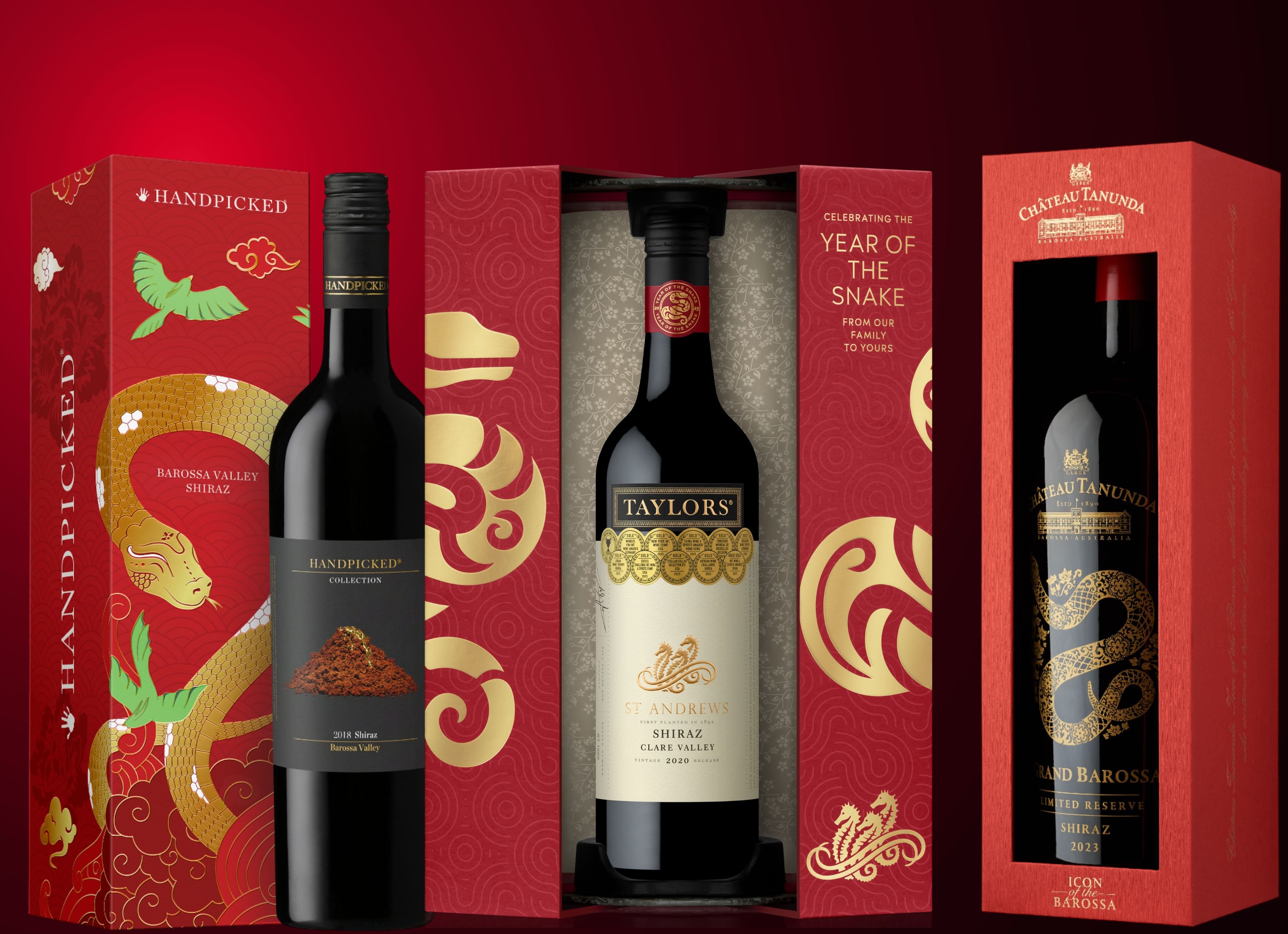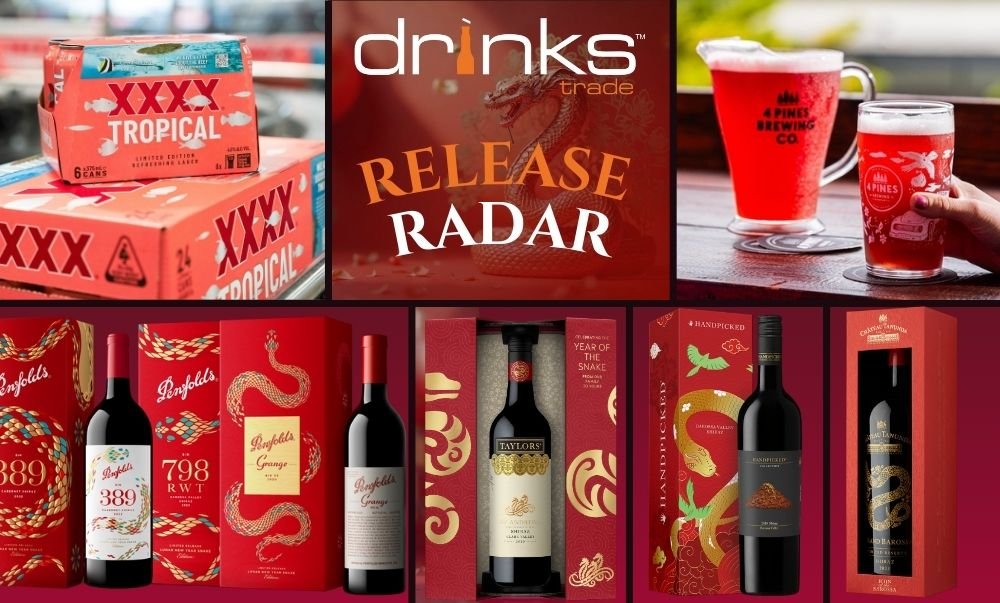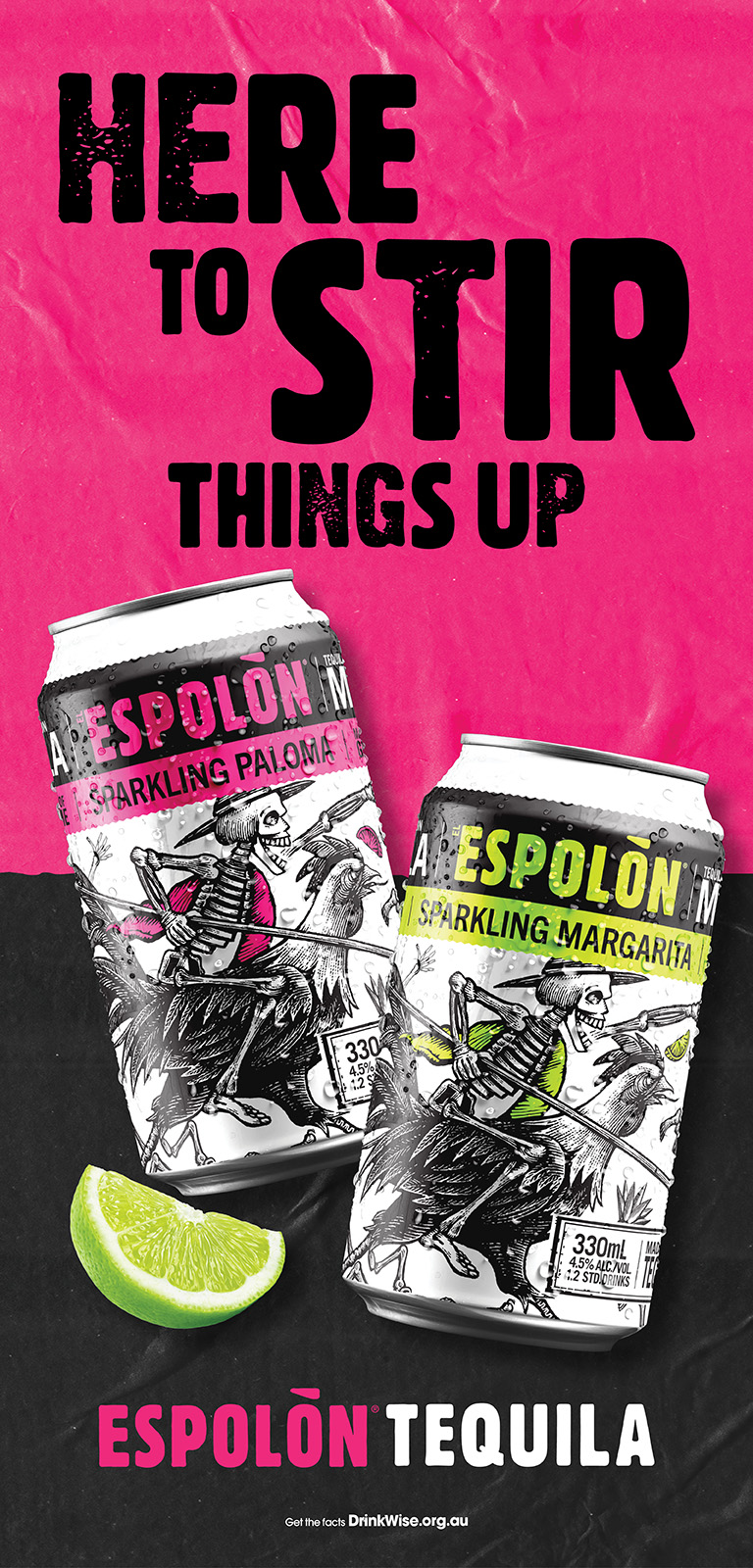Since February, Riverland has remained at the forefront of conversations around the economic pressures being faced by Australia’s wine producing sector. This includes both the vocal outcries from the growers and producers themselves along with the policy work being conducted by Riverland Wine.
With these issues ongoing and unlikely to abate at any time soon, Drinks Trade decided to sit down with Riverland Wine’s Executive Officer Lyndall Rowe and Independent Chair Darren Oemcke to discuss the situation.
Drinks Trade: So what’s been happening in the Riverland?
Darren Oemcke: As you know, there is quite a significant oversupply of wine in Australia, and [this] particularly impacted the Riverland, and the reason it's impacted the Riverland substantially is partly because of the tariffs in China and partly because it was really hard to ship wine out of Australia for a couple of years after Covid. A lot of people aren't aware that the shipping crisis meant that a lot of ships didn't come to Australia… So, between the two, that built up a reserve of wine.
DT: Which growers have been most affected?
Lyndall Rowe: Some growers are hit harder than others, particularly in that group where you've got smaller growers. 50% of the Riverland grape growers are 10 hectares or less, so it's just really hard to produce wine grapes that are profitable, essentially, because you're dealing with such small volume.
Darren Oemcke: And I'd add to that: it's not just Riverland… Regions that produce those wines that have gone into the everyday wines/the wines that people drink most of the time: that particular part of the category has been hard-hit because it's a high-turnover category.
DT: What is Riverland Wine doing to try and alleviate current economic stresses?
LR: We've been working really closely with the South Australian Government for the last two years to develop, first of all, a 10-year strategic plan called the Riverland Wine Industry Blueprint. We've got a really clear path on what needs to be done, what we would like government to do, and also we are working very closely with industry partners. So we've got buy-in from government and industry on this.
DO: The other element is on the policy side that we think there will be less growers in the region, and we are working with government and we've gone with approaches to government on how they can help people, how we can support people changing their livelihood so that people who've got negative cash flow as a result of what's going on in the sector. We're also looking for support for people to transition out of grapes or into other crops as part of the response.
DT: With that in mind, why do you feel as though the CCW growers rejected Accolade’s buyout offer? What are you hearing from growers?
DO: Look, the way we see that is that it's business that's between the growers and the cooperative, and the cooperative and Accolade...
LR: I think that they want a better deal.
DO: They perceive that there's a better deal. They do perceive that. Riverland Wine doesn't have a position on it at all. But the growers clearly said, ‘well, this is not what we're looking for, so we just have to wait,’you know. Right now, the growers have stuck with the existing contract, so we go into the vintage with that, and that's where it sits. Both sides have been quite clear. We can't add anything, because both sides have come out and said what they wanted.
DT: We previously published that the $4,000 per hectare ‘was evaluated in lieu of Riverland Wine’s modelling for a government-funded exit’... Was this true?
DO: No, that's not quite true. What Riverland Wine did is, after the Blueprint, and [given] it's become increasingly clear that there's a lot of production that has a problem, there's growers in the region who are having trouble selling their grapes at a price that is enough to pay for the cost of production, and it's very hard for them to sell their land because banks won't finance the buying of it, and they can't get finance to grow a crop. So what we wanted at Riverland Wine was for there to be an option for those producers that kind of cleared the decks of the grapes.
Our proposal was to ask for some support from government to help those producers to not be trapped in grapes. Now, we don't know what the uptake would be, (we estimated it on 10% to 15% of the area)… but what it does is gives growers an option.
We have no idea how many of them would take it up because the vast majority of them are passionate about growing grapes, and what they really want is for the grape prices to recover to the point that it's profitable for them to do it. The reason that we've gone out and asked for support is because some of them just won't be able to wait very much longer: we think that there's at least two more years of suppressed prices until it washes through on the assumption that Asia and China do take up some of the wine.
It's really good that China's back on because it gives us the opportunity to rebuild our markets back towards what they were, so we'll be able to run that surplus down.
DT: What is Riverland Wine doing to kickstart the China re-entry?
LR: Well, promotions such as being at Vinexpo; putting the regional quantum centre on the world stage, and in front of buyers from Hong Kong, buyers from China, and other various places in Southeast Asia as well.
DO: We're working really hard with State Government in Australia. The South Australian state government has committed additional resources. We actively work with the government on trade policy and what opportunities they're creating. We sit down every month with staff from the Department of Trade and talk to them about what our producers are thinking, what our views are on trade initiatives, what we're looking for. We've got a great opportunity to talk to government about how the Riverland region works within the overall system for all of the South Australian regions, and so I think that's been a really important initiative for the last 12 months.
DT: Can you talk about what progress has been made through those conversations?
DO: We're seeing government, you know, listen to some of the unique needs of Riverland producers and bulk wine producers. We're seeing ourselves increasingly invited to be part of the bigger picture.
DT: How does Riverland Wine distribute its time and resources among its members?
LR: It needs to be pretty even. We have nearly 1,000 members. We are a member-based organisation. Obviously, at different times, people need help more than others, but we are a wine grape grower and winemaker organisation, so we need to be fairly evenly distributed.
DT: How does the near to distant future look for Riverland’s wine trade?
LR: It's tough. There's no question.
DO: It's tough to know. There's a couple of tough years for some of the growers in the region. There's some growers in the region who have got contracts: they're sorted, things are really settled and we don't know how settled the CCW-Accolade relationship is, but we know that for some of those high volume wines that the price has to come up before anybody's making money.
We're hopeful that the price will come up in the next couple of years, but we think that, for some producers in the region, there's some tough times, and for some producers in the region, they've got some great times in the next couple of years.
It's a really mixed story. It's hard to get that across.
Share the content
